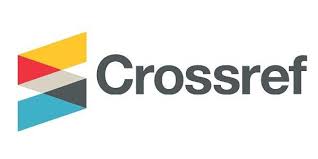
More articles from Volume 6, Issue 1, 2024
ANTICANCER POTENTIAL OF NOVEL PALLADIUM(II) COMPLEXES WITH ACYL PYRUVATES AS LIGANDS: DNA AND BSA INTERACTIONS AND MOLECULAR DOCKING STUDY
ANALYSIS OF ECONOMIC AND BUSINESS INDICATORS OF ENTREPRENEURSHIP IN REPUBLIC OF SRPSKA
MARKETING STRATEGIES IN RECRUITING AND TRAINING VOLUNTEERS FOR THE ORGANIZATION OF SPORTS COMPETITIONS
ARTIFICIAL INTELLIGENCE: EFFECTS ON SOCIETY, THE ECONOMY, AND ITS REGULATION
BLOCKCHAIN IN PUBLIC ADMINISTRATION IN BOSNIA AND HERZEGOVINA
Article views
MARKETING STRATEGIES IN RECRUITING AND TRAINING VOLUNTEERS FOR THE ORGANIZATION OF SPORTS COMPETITIONS
Faculty of Economics, University „Union – Nikola Tesla“ , Belgrade , Serbia
Faculty of project and innovation management “Professor Petar Jovanović”, University Educons , Belgrade , Serbia
Faculty of project and innovation management “Professor Petar Jovanović”, University Educons , Belgrade , Serbia
Faculty of project and innovation management “Professor Petar Jovanović”, University Educons , Belgrade , Serbia
Faculty of project and innovation management “Professor Petar Jovanović”, University Educons , Belgrade , Serbia
Received: 20.12.0024.
Accepted: 26.02.2024. >>
Published: 30.04.2024.
Volume 6, Issue 1 (2024)
pp. 24-33;
Abstract
The study paper’s focus is on establishing the connection between marketing initiatives and the strategy used by numerous volunteers to plan sporting events. The manager of the volunteer sector is responsible for assembling a project team and overseeing the recruiting, selection, training, deployment, supervision, and coordination of volunteers while they work as volunteers at major sporting events. The greatest candidates for this position are coordinators for the volunteer sector who have experience as volunteers, as they can inspire others to perform selfless volunteer work. Research has shown that in order to effectively oversee 800 unpaid employees, someone must first build a direct relationship with them—something that can only be done in the event that there are a significant number of trained coordinators. Additionally, it is essential to heavily publicize the volunteer contest and emphasize the advantages that volunteers obtain by taking part in order to attract a big number of participants. In addition to the aforementioned, well-planned, organized, intricate, and gradual preparation that begins several months prior to the competition is required to prepare a big number of volunteers for high-quality and committed involvement at a sporting event. After receiving top-notch training, volunteers can serve in any area of the competition. Additionally, volunteers who have previously taken part in a well-run sporting event typically return to sports volunteering multiple times. Ultimately, the paper’s set hypothesis—which related to the contention that there is a positive connection between marketing initiatives, sports event organization, and the approach of volunteers.
Keywords
References
Citation
Copyright
All papers are licensed under a Creative Commons Attribution 4.0 International License.
Article metrics
The statements, opinions and data contained in the journal are solely those of the individual authors and contributors and not of the publisher and the editor(s). We stay neutral with regard to jurisdictional claims in published maps and institutional affiliations.











